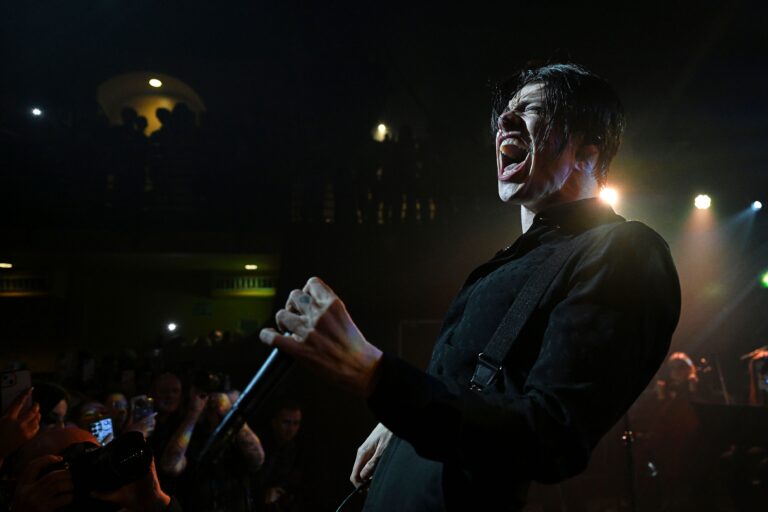
Don Henley, Irving Azoff Sued Over Handwritten Lyrics

Don Henley, co-founder of the iconic rock band the Eagles, and his manager, Irving Azoff, are being sued by rare book dealer Glenn Horowitz. Horowitz, previously accused of attempting to sell stolen handwritten lyrics from the Eagles' legendary album “Hotel California,” has filed a lawsuit against Henley and Azoff, ardently claiming they falsely accused him and subsequently caused significant damage to his reputation and business. This case stems from a long-standing saga over the ownership and provenance of the handwritten lyrics, which have traversed a convoluted journey over several decades.
Originally accused in 2022, Horowitz, along with co-defendants Craig Inciardi and Edward Kosinski, faced criminal charges connected to the sale of these lyrics. The charges, however, were dropped in 2024 after it came to light that Henley and Azoff's legal team had withheld critical evidence that could have exonerated the defendants earlier in the process.
The roots of this controversy trace back to an arrangement in 1979 when Henley hired author Ed Sanders to write a never-published memoir about the band. According to court filings, Sanders claimed to have acquired the handwritten lyrics with Henley's consent. After the project was abandoned, Sanders reportedly retained these notes, which eventually ended up with Horowitz in 2005. This chain of custody is the crux of Horowitz's defense – that the lyrics were not stolen, but rather legally acquired from Sanders.
Horowitz alleges that Henley and his legal counsel purposefully obscured the truth, leveraging attorney-client privilege to withhold approximately 6,000 pages of potentially exculpatory emails during the initial trial. This alleged suppression of evidence played a pivotal role in the Manhattan District Attorney's decision to dismiss the case, with prosecutors acknowledging that crucial information had been intentionally withheld by Henley's team.
Moreover, Horowitz claims significant damages from what he describes as an “unjust prosecution.” His lawsuit details the extensive professional and personal harm he suffered, citing losses exceeding ten million dollars due to diminished business prospects and reputational damage, alongside severe emotional and financial distress experienced by him and his wife. Despite the charges being dropped, Henley, Azoff, and their legal teams have maintained their stance, describing Henley as a victim of illicit memorabilia sales and defending their course of action as an effort to reclaim Henley's intellectual property wrongfully taken and sold.
Critically, Henley's attorney, Dan Petrocelli, has described Horowitz's lawsuit as the only instance of malicious prosecution in this affair, portraying Henley as a rightful owner trying to protect his property. Meanwhile, Horowitz's attorney, Caitlin Robin, asserts that the evidence supports their claims of legal acquisition, implying that Henley and Azoff's accusations were knowingly false and pursued with unjust intent.
This ongoing legal drama continues to attract widespread attention, underscoring the complex issues surrounding entertainment law and intellectual property rights. As Horowitz seeks reparations in his suit against Henley and Azoff, the case propels discussions on the responsibilities and ethical obligations of preserving and representing artistic legacies accurately and honorably. The final judicial determinations in this case will likely have significant ramifications for how similar disputes are navigated in the future.
Key Takeaways
-
www.stereogum.com | Glenn Horowitz filed a lawsuit in New York, claiming that Don Henley and Irving Azoff knew the lyrics sheets were legally obtained, yet they pursued charges against him.
-
ultimateclassicrock.com | Horowitz claims the malicious prosecution has caused him over $10 million in damages including loss of business, reputation damage, and severe emotional distress.
-
americansongwriter.com | After being acquitted in a criminal trial, Glenn Horowitz is suing for damages, alleging that Henley used his influence to manipulate legal proceedings against him.
-
www.billboard.com | Manhattan prosecutors dropped charges against Horowitz after evidence suggested Henley and his attorneys had withheld crucial information during the trial.
-
www.independent.co.uk | During the legal conflict, new evidence showed that handwritten lyrics had been legally obtained by Ed Sanders in the course of writing a book about the Eagles, which was never published.





















